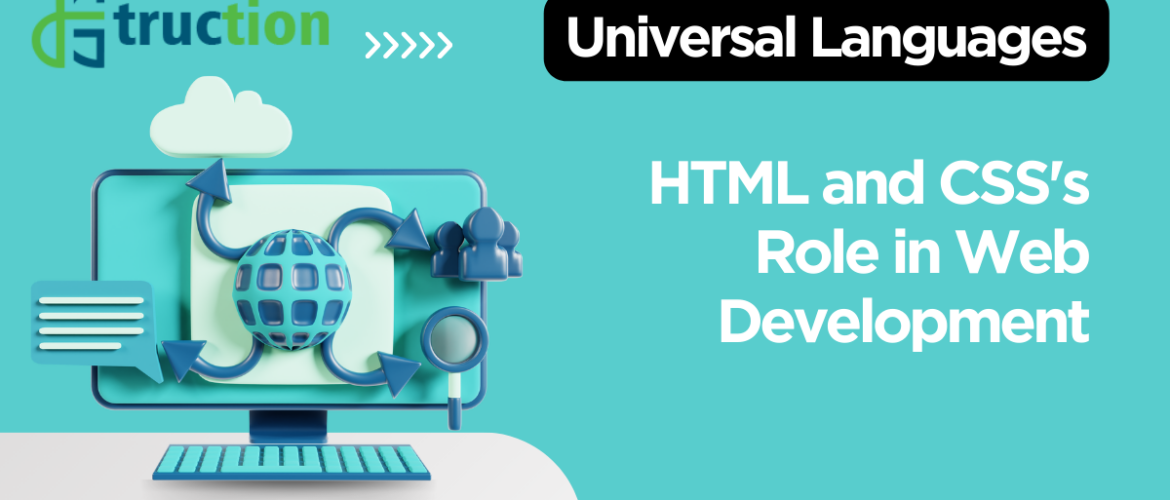Universal Languages: HTML and CSS‘s Role in Web Development
The internet age has ushered in a new era of communication and information sharing, and at the heart of this digital landscape lies a powerful duo: HTML and CSS. These seemingly simple languages, often referred to as the fundamentals of web development, play a ubiquitous role in shaping the online world we experience today.
Universal Languages: HTML, The Blueprint of Content
Imagine a building without a blueprint. That’s essentially what the web would be like without HTML, or Hypertext Markup Language. This language acts as the foundation, defining the structure and content of every webpage. From headings and paragraphs to images and forms, HTML provides the building blocks that web browsers interpret and display. Its simplicity and flexibility make it accessible to both seasoned developers and curious beginners alike.

Universal Languages: CSS, Adding Style and Flair
While HTML provides the structure, Cascading Style Sheets (CSS) bring the visual magic to life. This language allows you to control the visual presentation of your webpage, from font styles and colors to layouts and animations. Imagine painting a house built with HTML; CSS is your brush and palette, transforming the bare bones into a visually appealing and user-friendly experience.
Universal Languages: Together, a Universal Language:
The true power of HTML and CSS lies in their synergistic relationship. Imagine them as a well-rehearsed musical duo. HTML lays the melodic foundation, while CSS adds the harmonies and rhythm, creating a beautiful and cohesive composition. This collaborative effort ensures that webpages are not only semantically structured but also visually engaging and accessible to a wide range of users and devices.
Universal Languages, Impact:
From simple static websites to complex interactive applications, HTML and CSS are the essential ingredients. Their influence extends far beyond the traditional web, shaping elements like email interfaces, mobile apps, and even digital documents. This universality makes them valuable tools for anyone wanting to participate in the digital world, whether as a content creator, designer, or developer.
Universal Languages, Beyond the Basics:
While HTML and CSS form the core foundation, the web development landscape is constantly evolving. Frameworks and libraries built upon these languages offer additional functionalities and streamline the development process. However, understanding the fundamentals of HTML and CSS remains crucial for any aspiring web developer, as it empowers them to grasp the underlying structure and logic of the web.

The Future of the Universal Duo:
With the ever-expanding digital landscape, HTML and CSS continue to adapt and evolve. New features and specifications are constantly being introduced, reflecting the growing demands of web technologies. However, their core principles of structure and style remain timeless, ensuring their continued relevance in the ever-changing world of web development.
So, the next time you browse the web, take a moment to appreciate the invisible language duo behind the scenes. HTML and CSS, the universal languages of web development, continue to shape the online world we experience, offering a foundation for creativity, communication, and innovation.
Accessible Web Ethics: The Responsible Developer’s Guide to HTML, CSS – 3 facts





Leave A Comment